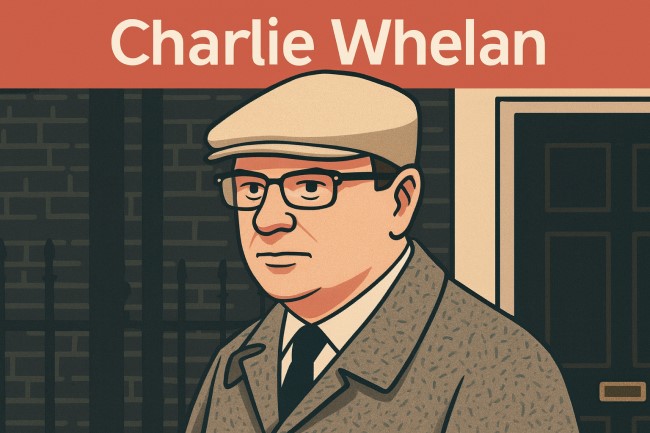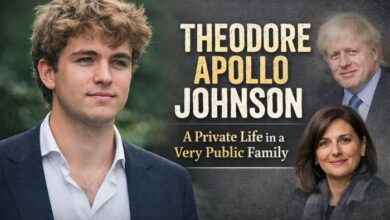Charlie Whelan: The Political Strategist Who Shaped New Labour’s Media Power

Charlie Whelan is one of the most intriguing figures in British politics, known for his sharp wit, strategic brilliance, and the ability to shape public narratives from behind the scenes. As a political adviser, spin doctor, and trade union strategist, Whelan’s influence during the rise of New Labour and the Gordon Brown era was immense. Though often controversial, his career offers a masterclass in political communication, loyalty, and the art of managing media perception in an ever-changing political landscape.
Table of Contents
ToggleEarly Life and Education
Humble Beginnings in Surrey
Born in 1954 in northeast Surrey, Charlie Whelan grew up in a working-class household. His father, a civil servant and Conservative supporter, provided a politically charged environment that helped ignite Whelan’s early interest in politics. Unlike many of his later Labour colleagues, Whelan’s background was grounded in ordinary British life — a factor that shaped his pragmatic, plain-spoken communication style.
Education and Early Influences
Whelan attended Ottershaw School in Surrey, a state boarding school that emphasized discipline and independence. Later, he studied politics at the City of London Polytechnic, where his academic focus began to align with his growing passion for labour rights and economic policy. These formative years gave Whelan both the intellectual foundation and the streetwise instincts that would later define his political career.
The Path to Politics
Early Career in Finance
Before entering full-time politics, Charlie Whelan briefly worked as a foreign exchange dealer in the early 1980s. This experience exposed him to the high-pressure world of finance and sharpened his understanding of economic systems — knowledge that would become crucial in his later work with Gordon Brown, the future Chancellor and Prime Minister.
Union Work and Political Awakening
Whelan’s true political journey began when he joined the Amalgamated Engineering Union (AEEU). There, he worked as a researcher and assistant to the legendary trade unionist Jimmy Airlie. During this time, Whelan was also a member of the Communist Party, a reflection of his deep commitment to workers’ rights and social equality. His years in the trade union movement taught him how to organize, negotiate, and influence — skills that became his trademarks in political communications.
Charlie Whelan and Gordon Brown: A Powerful Alliance
The Rise of a Political Partnership
In the early 1990s, Charlie Whelan joined Gordon Brown’s team as a press officer and political adviser. Their partnership quickly became one of the most influential relationships in British politics. Whelan’s loyalty to Brown was legendary, and he became one of the key architects of Brown’s public image, particularly during the Labour Party’s transition into Tony Blair’s New Labour project.
Shaping the Media Narrative
Whelan’s mastery of political messaging helped Brown appear as a serious, economically competent alternative to the Conservatives. Known for his sharp humour and directness, Whelan could turn a complex policy into a simple headline. His close ties with journalists made him a formidable figure in Westminster, where his name became synonymous with strategic leaks, timely briefings, and media management at its most effective.
Controversy and the Mandelson Affair
A High-Profile Scandal
In 1999, Charlie Whelan’s career as Gordon Brown’s spokesman came to an abrupt end. He was accused of leaking details of Peter Mandelson’s secret loan to a fellow minister, a revelation that triggered one of the most infamous scandals of the New Labour era. Though Whelan denied being the source of the leak, the political fallout forced him to resign from his position.
Aftermath and Reinvention
Rather than disappearing from public life, Whelan reinvented himself. He became a political commentator, appearing on BBC Radio and writing columns that offered insider insights into British politics. His wit and candour made him a popular media personality, while his deep understanding of political dynamics continued to earn him respect — even from his critics.
Return to the Labour Movement
Joining Unite the Union
In the 2000s, Charlie Whelan returned to his roots in the trade union movement by becoming Political Director of Unite, the United Kingdom’s largest trade union. In this role, he once again influenced the direction of Labour politics, helping shape the party’s relationship with organised labour and ensuring that the voice of workers remained central in political debates.
The McBride Email Scandal
In 2009, Whelan’s name surfaced again during the Damian McBride email scandal, which involved plans to spread false rumours about political rivals. Although Whelan denied any wrongdoing, the controversy reignited public debate about his aggressive media tactics. Despite the criticism, his resilience and refusal to be silenced only reinforced his reputation as one of Britain’s toughest political operators.
Later Life and New Endeavours
Stepping Back from the Spotlight
In 2010, Charlie Whelan announced his decision to step down from Unite. He expressed his desire to focus on writing and personal pursuits, including his passion for fishing and rural life in the Scottish Highlands. Though less visible in national politics, Whelan remained a respected commentator and occasional contributor to political discussions.
A Voice in Scottish Politics
Even in semi-retirement, Whelan could not completely leave the political arena. Reports in recent years suggested he considered standing as a council candidate in Scotland, driven by a belief that local politics needed honesty and authenticity. His commitment to Labour values and his critique of modern political spin continued to define his public persona.
Legacy and Influence
The Architect of Political Communication
Charlie Whelan’s impact on British politics cannot be overstated. He helped redefine how political communication was managed in the modern media era. Long before social media became dominant, Whelan understood the power of messaging, timing, and relationships with journalists. His strategic instincts laid the groundwork for how political media operations function today.
A Controversial but Respected Figure
Though some critics saw him as a ruthless spin doctor, others viewed him as a loyal and principled adviser who understood that politics is as much about perception as it is about policy. His dedication to Gordon Brown, his deep connection with the labour movement, and his mastery of political storytelling have cemented his place in modern British political history.
Conclusion
Charlie Whelan remains one of the most influential and misunderstood figures in contemporary British politics. From his days as a union researcher to his role at the heart of New Labour’s media machine, Whelan’s career is a study in power, loyalty, and the complexities of political communication. His story reflects both the promise and the peril of working in the shadows of political power — where words can make or break careers, and loyalty is both a strength and a vulnerability.
Even today, the name Charlie Whelan evokes the golden age of political strategy — a time when one man’s phone call could shift the headlines of Britain’s biggest newspapers. Whether admired or criticized, his legacy endures as that of a political craftsman who understood that controlling the message means shaping history itself.



